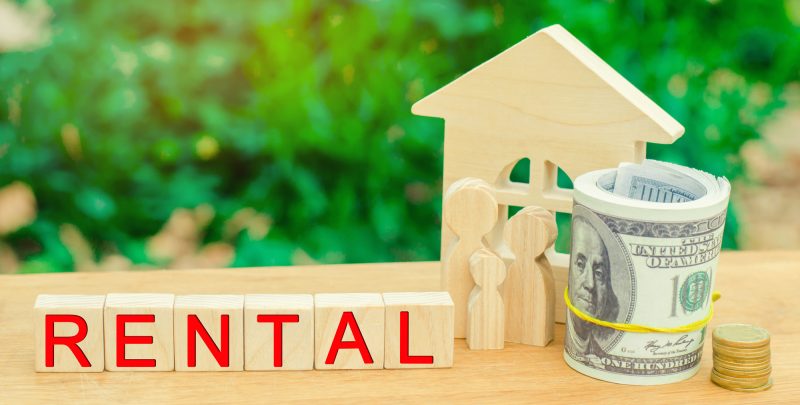If you’re considering becoming a landlord, remember that it’s important to stay organized and on top of everything in order to be successful.
You’ll need to be prepared to handle all aspects of the rental property, from marketing and finding tenants, to maintenance and repairs. However, if you’re able to put in the work, you can be rewarded with a stress-free and profitable experience.
While the obvious benefit to investing in rental properties is gaining passive income from your tenants, there are other perks of being a landlord. Check out these tips on how to manage your own rental property.
Time Management
For the rental property management guide, effective time management is the first thing you should know as a rental property owner. You must develop a regular schedule for checking on your property.
This should include both visual inspections and regular maintenance tasks. Once you have a schedule in place, stick to it as much as possible.
And another thing, time management is key to keeping on top of things. This includes everything from keeping track of payments and deposits to maintaining the property itself.
If you have tenants, be sure to give yourself enough time to conduct showings and perform repairs in a timely manner. Additionally, keep a close eye on your finances and make sure you are budgeting correctly for rental expenses.
From there, you can create a system that works for you and your property. If you can’t be there in person, delegate tasks to a trusted property manager or friend.
Money Management
There are a lot of things that go into money management when you are a rental property owner.
You need to make sure that you are charging enough rent to cover all of your expenses, including mortgage payments, property taxes, insurance, and repairs.
You also need to set aside money for vacancy periods. In addition, you need to be able to manage your tenants’ expectations and keep them happy.
As a rental property owner, it is also important to keep a close eye on your finances. This includes understanding your revenue and expenses, tracking your payments, and knowing your break-even point.
Your revenue is the income you earn from renting out your property. This includes rent payments from tenants and any other income, such as from laundry facilities or parking.
Your expenses are the costs associated with owning and operating your rental property. This includes mortgage or rent payments, property taxes, insurance, repairs, and maintenance.
Knowing your break-even point is the key to being a successful rental property owner. This is the point at which your rental income covers all of your expenses. Once you reach your break-even point, you can begin to make a profit from your rental property.
Maintenance Management
As a rental property owner, it is important to stay on top of maintenance and repair needs in order to keep your tenants happy and your property in good condition.
Creating and following a regular maintenance schedule is a great way to stay organized and on top of things. Be sure to include both preventative maintenance tasks (like changing air filters and checking for leaks) as well as reactive repairs (like fixing a broken window or unclogging a drain).
Keep good records of all work that is done so that you can refer back to them as needed. Also, don’t be afraid to delegate some of the work to a professional property management company if it becomes too much to handle on your own.
You’ll need to develop a good rapport with your tenants and keep open communication about any maintenance issues that come up.
It’s also important to have a system in place for tracking maintenance requests and keeping up with preventive maintenance. You’ll need to be familiar with your local building codes and be able to handle any repair or upkeep issues that come up.
But if you’re organized and have a good working relationship with your tenants, your own rental property management can be a rewarding experience.
People Management
If you’re thinking about managing your own rental property, there are a few things to keep in mind when it comes to people management. First, you’ll need to be able to screen tenants and handle the application process.
This includes running background and credit checks. Once you have selected a tenant, you’ll need to be able to collect rent and deal with any maintenance or repair issues that come up.
It’s also important to be fair and consistent when enforcing the rules of the rental agreement. Lastly, you’ll need to know how to handle evictions if it comes to that.
If you’re organized and have good people skills, managing your own rental property can be a rewarding experience.
For any investor looking for high returns on a potential rental property, Check this website: Ballard Built
Do’s and Don’ts
To become a landlord, there are a few things you should know about managing your rental property. First and foremost, it’s important to follow all the laws and regulations that apply to landlords in your state or municipality.
This includes things like getting a business license, registering your rental property with the local government, and following fair housing laws. Additionally, you’ll need to make sure you have the right insurance coverage for your rental property.
Once you’ve taken care of the legalities, you’ll need to find tenants. You can screen potential tenants by running a credit check and conducting an interview.
Once you’ve found tenants, it’s important to keep up with periodic maintenance and repairs. Be sure to respond to repair requests in a timely manner and keep your rental property in good condition.
By following these tips, you can successfully manage your own rental property.
How to Manage Your Own Rental Property 101
You should know about how to manage your own rental property. From finding the right tenants to maintaining the property, it’s important to be prepared for what’s ahead.
With a little planning and some help from experts, you can be a successful rental property owner. Overall, self-managing your rental property takes a lot of time, effort, and knowledge.
However, it can be extremely rewarding, both financially and personally. If you do your research, develop a good system, and stay organized, you can successfully manage your own rental property.
Was this helpful? If so, please keep reading for more management tips.









